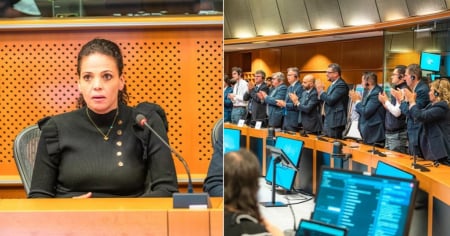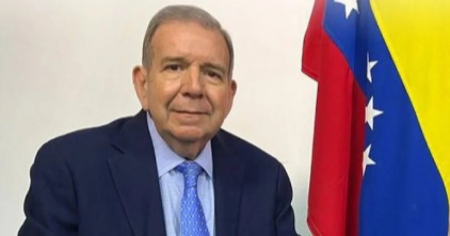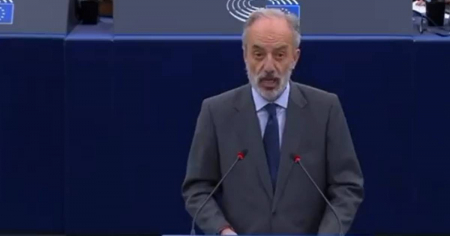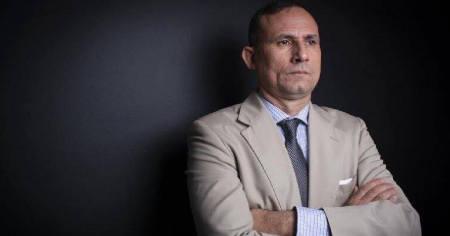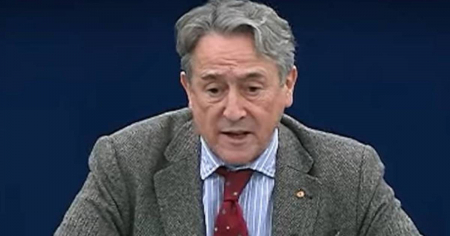During the second day of the IV Session Period of the Cuban Parliament, a deputy stated that young Cubans want to remain in Cuba to "build socialism."
"After expressing gratitude to the party, the revolution, and Fidel" on behalf of his mother, family, and sister, "for having a policy and an action plan that allows us to develop in our country," the young man urged "all Cuban youth to take ownership of this action plan, of the future code" that the country is developing with the Ministry of Education.
"To ensure that young people can say, 'we are staying in Cuba and we want to be in Cuba,' he declared."
The debates in which he participated focused on the implementation of the action plan for the comprehensive policy on children, adolescents, and youth.
Vice Prime Minister Eduardo Martínez presented the progress of this policy, which has been in implementation for a year, through an audiovisual featuring children, adolescents, and young people. They highlighted the achievements made and the challenges that remain to ensure their active participation in the process.
With 14 specific objectives, the policy is based on comparative studies, the Constitution, the Child Code, and the Family Code. This legal framework lays the groundwork for the development of the future Child Code Bill, which is currently in the phase of specialized consultations and will provide an opportunity to include the opinions of the public and experts in the field, according to the government.
However, young Cubans claim that their main goal in life is to leave the island and escape poverty and a lack of freedoms.
A survey conducted by our outlet highlighted the significant disinterest of the Cuban population regarding government-sponsored events, as the majority of participants expressed a preference for leaving the country rather than attending the March of the Combatant People that took place on Friday, December 20.
Frequently Asked Questions about Cuban Youth and Socialism
What do young Cubans really think about staying in Cuba?
Despite what a young deputy claims about the desire of young people to stay in Cuba to "build socialism," many Cuban youths express their wish to leave the country due to poverty and a lack of freedoms. This is reflected in surveys indicating that their primary goal in life is to emigrate.
What is the new Migration Law in Cuba?
The new Immigration Law, approved by the Cuban Parliament, removes the 24-month limit for staying abroad without losing residency in Cuba. Additionally, it aims to modernize immigration regulations and strengthen ties with the Cuban diaspora, although it maintains restrictions for opponents and activists.
How does the economic crisis affect children in Cuba?
The economic crisis in Cuba has forced many children to work instead of enjoying their childhood. Child labor is on the rise, with minors selling goods on the streets or seeking ways to support their families financially, despite the law prohibiting child labor.
What does the new Children’s Code in Cuba aim to achieve?
The new Childhood Code in Cuba aims to protect and prepare children and youth for the country's future, inspired by the values of figures like Fidel Castro. However, there are concerns that it may be used as a tool for indoctrination and social control, limiting the development of critical thinking in the new generations.
What are the criticisms of the Cuban regime regarding its youth policy?
Critics of the Cuban regime highlight contradictions between the official discourse and the reality faced by young people. While the construction of socialism is promoted and freedom of expression is restricted, many young people seek to emigrate to escape poverty and a lack of opportunities on the island.
Filed under:

